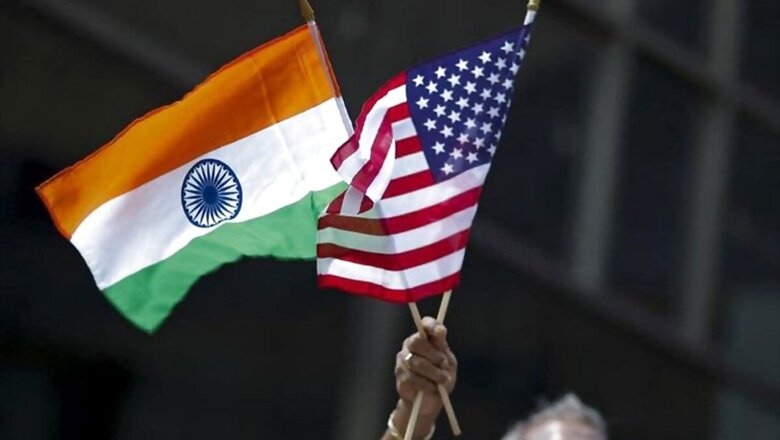
views
“It is in the interest of the world to see Americans vaccinated”? Let us be realistic and candid! Altruism does not sit on the board of directors of business houses and conglomerates; their interests (profit!) do and rightly so, under normal circumstances. But what if there is a national/global emergency threatening the survival of hundreds of thousands of people?
And yes, there is a global emergency in the shape of the COVID-19 pandemic which has consumed over 3.1 million lives, including some 1,90,000 in India. The second wave that is currently battering India is snuffing out more than 2,000 lives daily. And the conglomerates in question are the big pharmaceutical companies like Pfizer. However, the main protagonist is none other than the US—the free world’s putative leader which has a “comprehensive global strategic partnership” with India.
India and the US collaborate closely and have dozens of dialogue mechanisms covering practically every aspect of human endeavour, be it bilateral, regional or multilateral. We are founder partners in Quad which is committed to securing a free, open, inclusive and coercion-free Indo-Pacific region, as well as maritime security, to preserve the rule of law, territorial integrity and freedom of navigation/aviation.
However, there is a “minor niggle”. Washington is not overly concerned about the avoidable loss of hundreds of Indian lives daily, due to paucity of COVID vaccine and other medical supplies, which the US has an abundance of. Yet, responds the erudite spokesperson of the state department– “first and foremost, our priority is … (to vaccinate) millions of Americans… It is not only in our interest that the American people are vaccinated … the rest of the world also (is interested in seeing that) … the American people are vaccinated and that the virus is brought under control here”.
Compliments to my American colleague for making an unusually outlandish and patronizing statement!
Such an outlook is also characterized as ‘vaccine nationalism’ which had riled the US, India and practically every other country, when practiced by China last year, while the world was in the throes of the first wave of the pandemic. These countries would not tire of swearing by ‘vaccine equity’. But then the shoe was on the other foot, I guess!
India actually bucked the trend and walked the talk making 66.2 million doses of the vaccine available to 95 nations both on complimentary basis and commercially. Last year, when the US had a dire need, India supplied hydroxychloroquine notwithstanding domestic constraints. All the same, New Delhi does not expect reciprocity. She is also very mindful of legitimate needs of the US and every other country, which deserve to be accorded priority.
What is galling, however, is that the US actually appears to be hoarding an assortment of vaccines including millions of doses of Astra Zeneca, which she neither needs nor has she approved the vaccine for domestic use.
The New York Times disconcertingly reports that “tens of millions” of AstraZeneca doses “have been sitting idly” at American manufacturing plants. Emergent BioSolutions, the Baltimore-based vaccine production unit, has “serious quality shortcomings” and had “discarded millions of possibly contaminated doses of AstraZeneca’s at the plant”. Its operations have since been halted. And yet the federal government had committed to “buying 300 million doses from AstraZeneca” intended for “loan” to Mexico, Canada and other nations.
In this hour of crisis for India, when production and capacity require to be ramped up to urgently meet the domestic and international demands, the American preference to waste or hoard vaccine, instead of allowing exports of components and API (active pharmaceutical ingredients) to Indian units, is inexplicable. One explanation is the role of big pharma companies which are apprehensive of losing the big bucks if the Indian capacity is scaled up. They have traditionally exercised a lot of influence on the American polity.
The American big pharma will always look out for their shareholders’ interests. But what about the Biden administration which had sworn to be different. In his inaugural address, the President said—“We will repair our alliances and engage with the world once again … And we’ll lead not merely by the example of our power, but by the power of our example. We’ll be a strong and trusted partner for peace, progress, and security”. And again, on February 4, he had assured “America is back. America is back. Diplomacy is back at the center of our foreign policy.” Thank you, Mr. President!
The Indian side is in touch with Washington on the issue including at the ministerial level. Minister of External Affairs S. Jaishankar tweeted on April 19, “Spoke to my US counterpart Secretary of State @SecBlinken … Conversation covered recent developments in India’s immediate and extended neighbourhood … Also discussed issues pertaining to our health cooperation.”
All the same, Washington so far has offered ‘deepest sympathy’ instead of displaying solidarity. The chief medical adviser to President Biden, Dr Fauci, though has recognized the “dire situation” noting that Indians need to get “vaccinated because that’s the only way we’re going to turn that around.”
The US may yet relent and clear the supplies for India, but one hopes for the sake of bilateral ties that it is not too little too late. “You can always count on Americans to do the right thing—after they’ve tried everything else,” Winston Churchill had presciently observed. All the same, this cannot but cast a shadow on Biden administration’s earnestness.
Fortunately, ours is not a one-issue relationship. Bilateral ties have been on a steep northwards trajectory as convergences far outweigh the divergences. The US is known to be transactional and would remain so. We have had our differences in the past and will have many more. But the best part is that every time the relationship has emerged stronger. Hopefully it will be no different this time around!
Read all the Latest News, Breaking News and Coronavirus News here. Follow us on Facebook, Twitter and Telegram.












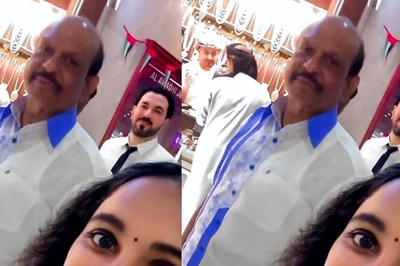
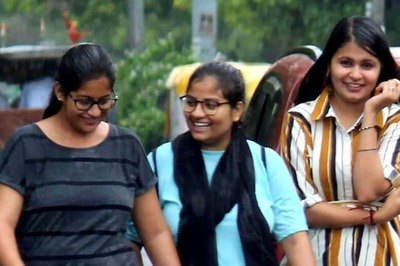


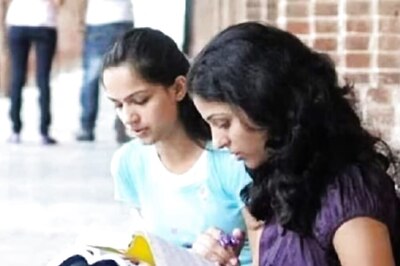
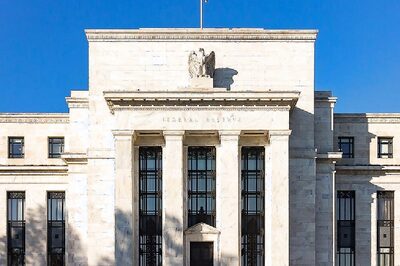


Comments
0 comment